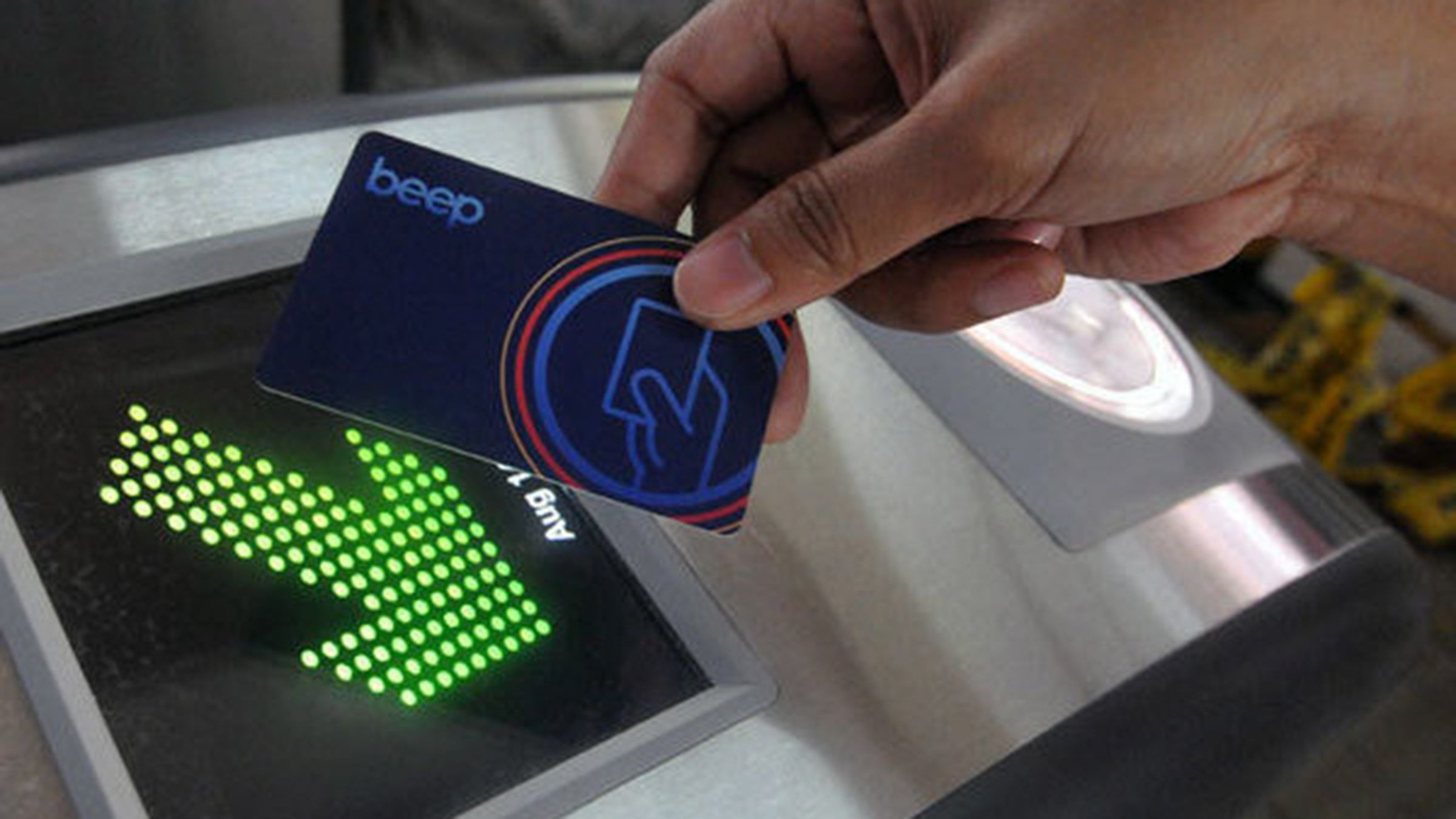AFPI will fail to deliver the 75,000 stored-value cards needed by the Metro Rail Transit Line 3.
The Department of Transportation (DOTr) yesterday directed the management of the Light Rail Transit (LRT) to come up with alternatives in addressing the impending shortage of stored-value or “beep” cards amid shortage of supply.
The DoTr was notified by AF Payments Inc. (AFPI), a partnership between the Ayala Group and the First Pacific Group, that it would not be able to meet the Metro Rail Transit Line 3's (MRT-3) July demand for 75,000 stored-value cards.
After the Department of Transportation warned of a possible scarcity, the Light Rail Transit Authority (LRTA) pleaded with commuters to maintain their stored value or Beep cards while their provider seeks for new alternate chipset manufacturers.
“Humihingi ng pang-unawa ang pamunuan ng LRTA sa mga pasahero hinggil sa inaasahang kakulangan ng mga Stored Value Card o Beep Card na ginagamit sa pagsakay sa LRT-1, LRT-2, at MRT-3,” the LRTA said on its official Twitter page Friday.
“Naghahanap na ng ibang mapagkukunan ng supply ng Beep Cards ang AF Payments Inc. makaraang magkaproblema sa paggawa ng electronic chips na nakapaloob sa mga Beep Cards.Pinapayuhan ang mga pasaherong may hawak ng Beep Cards na ingatan ang mga ito,” it added.
Commuters use stored value cards, especially employees and students who need to get to their destinations quickly. Commuters who use stored value cards can avoid standing in long lineups at ticket booths since they can reload the cards at convenience stores and other stores before taking the train.
“Samantala, maaari namang makabili ng single journey ticket sa mga ticket vending machines at sa passenger assistance office sa mga istasyon.Maraming salamat po,” it noted.
Last week, JP Morgan said the global chip shortage was caused by the pandemic after it forced manufacturing hubs, particularly China, to stop production. Afterward, the general shift to digital transactions drove up the demand for chips, especially by automation firms, the firm said.
As a result of the pandemic forcing major manufacturing centers, including China, to halt production, resulting in chip shortages, JP Morgan said last week adding that the general shift to digital transactions drove the demand for chips up , especially by automation firms, the firm said.
JP Morgan anticipates that the global chip crunch would end soon, it admitted that the current supply will fall short of providing for everyone’s needs.
“More chips will become available in the second half of the year and the shortage is nearing its end, but available chips may not be the right type to satisfy all demand,” JP Morgan said.
Tags: #DOTr, #beepcardshortage, #manufacturers

